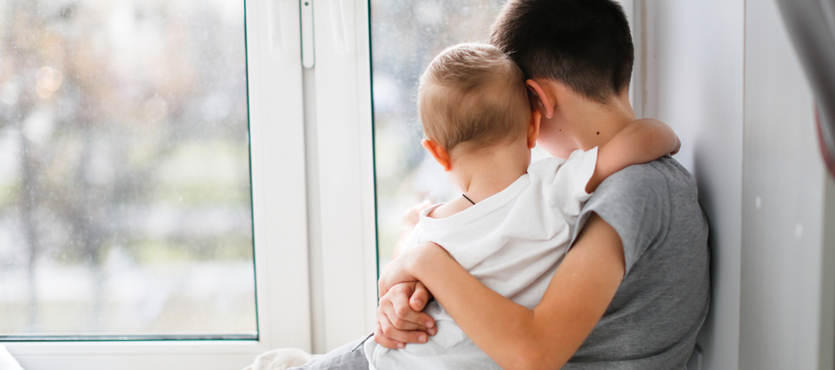In a divorce, people tend to focus on the spouses and what they are going through. Sure, breaking up a marriage after many years is profoundly difficult, but so is watching your parents split up.
Children thrive on stability. They want to know that their parents will love them and take care of them until they are old enough to do so on their own. So when children of any age hear that their parents are divorcing, it can be a devastating situation.
But unfortunately, parents are not always thinking about their children’s feelings and emotions. They tend to think about themselves and how they feel. When they do think about the children, it may be so they can figure out how to use them as pawns in the divorce, or as revenge against the other parent.
Because of this, siblings often feel an extra connection when their parents are divorcing, as they are dealing with the turmoil together. Their bond remains constant and it is not in flux like their relationship with their mother and father. A child’s relationship with their brother or sister is often closer and more meaningful than the relationship they have with their parents during a divorce.
Why Siblings Grow Closer
Not many studies focus on how the sibling bond changes once their parents split up, but the good news is that brothers and sisters often feel closer during and after a divorce. That is because they have been there for each other since birth. They are fellow survivors of childhood. They tend to have the same experiences, since they are in the same household. Because of this, children with siblings may be able to deal with the effects of divorce better than only children.
The company of a sibling provides reassurance and increases resilience among those who have seen their parents divorce as a child. These sibling relationships help protect children from the harmful effects of divorce.
For example, many children develop anxiety, depression, and anger issues from dealing with the challenges of their parents’ divorce. They may have to change schools, change their living environment, and move to a different neighborhood or town. Down the road, they may even have to contend with new family members, such as stepparents and step-siblings.
However, parents do not always do a good job of helping their children cope with the effects of divorce, since their mother and father are dealing with their own sadness. This causes siblings to turn to each other, and many children may feel that their sibling is the only person who truly understands the situation, since they are in the same boat.
There is also a caring role that goes on. The older ones may look out for the younger ones. They provide each other with stability and comfort. An older sibling may assist a younger brother or sister with homework or provide moral support and caretaking. In some cases, there may even be a parent-child dynamic.
Why the Sibling Bond is Important
Siblings typically spend more time with each other than with anyone else during their childhood years. Many of these relationships last for decades, outlasting friendships, marriages, and even the relationships they have with their own parents. Brothers and sisters tend to be a person’s very first playmates, helping instill social qualities, such as generosity, loyalty, and tolerance.
Strong, positive sibling relationships are important. They offer many benefits such as:
- Higher levels of self‐esteem
- Better academic performance
- When an older sibling provides emotional stability in an at-risk household, children are more likely to become well-adjusted adults
- Reduced levels of loneliness and depression
- Greater satisfaction later in life
Because of this closeness that siblings experience after a divorce, parents need to be careful not to break these bonds. They should instead encourage positive relationships.
What sometimes happens is that one child acts out after a divorce, causing parents to play favorites. One kid is the good kid, while the other is the bad kid, making siblings compete with each other. Also, in some divorces, custody is split among the children. The mother may have custody of one child, while the father has custody of the other. This arrangement damages the bond that the siblings have and drives them apart over the years. This often causes children to feel like only children, like they have no siblings.
Another issue is the lack of parenting that may occur after a divorce. It’s common for the parents to be so caught up in their own emotions that they neglect their children. They may spend all their free time focused on therapy appointments, self care, or even dating that they forget about caring for their children. This leaves the kids to fend for themselves, with the older one usually taking care of the younger ones. Children do not have the tools to properly care for each other, so the parents need to step in and be responsible.
Seek Legal Help
In a divorce, children are affected greatly. They may end up seeing changes in their relationships with their parents. They may feel blame, anger, sadness, and other negative feelings. Having a strong sibling bond can help them feel better adjusted.
Broward County divorce attorney Scott J. Stadler can help you and your children get through the complications of divorce. We have resources that can help you survive and thrive. Fill out the online form or call (954) 398-5712 to schedule a consultation.

